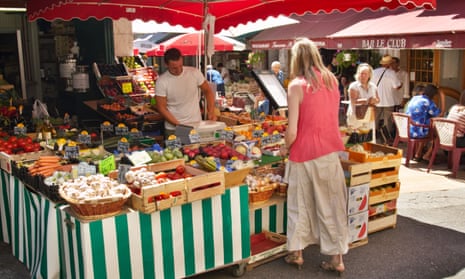I am, by nature, suspicious of food cliches. I don’t think Grandma’s cooking was always better. Certainly, my grandmother’s wasn’t. She hadn’t met a packet she couldn’t open and regarded the notion that she should cook from scratch as a calculated insult. Likewise, the good old days were nowhere near as good as now: choice was limited, quality was poor and “abundance” was a word for spelling competitions, not a descriptive term to be applied to food stocks.
I have long bridled at the insistence that the food cultures of our European neighbours are so much better than ours. It ignores the realities of history. Yes, trying to find a good meal in Britain outside the home (and inside it, for that matter) immediately after the second world war was as tricky as finding an honest banker in London’s Square Mile. Then again, during that war we industrialised food production to help fight a war of national survival, losing purchase on both cookery traditions and kitchen skills.
And what’s so good about those robust food cultures anyway? They tend to be inward-looking and small-minded. Two weeks in Tuscany sounds like a fabulous idea. Then the reality slides in, like ink seeping slowly across blotting paper: day after day of the same bloody pasta dishes, the same rustic salads and anything for dessert as long as it’s tira-sodding-misu or something “inventive” involving pears and almonds. By day five, what you wouldn’t do for a bit of Thai food doesn’t bear thinking about. We eat more widely and thrillingly in Britain specifically because of the weakness of our indigenous food culture.
And yet, here I sit on a sun-dappled terrace in south-west France, for, as I write, it is August and I am nothing if not a fully paid-up member of the Mainstream Media Liberal Elite. I have just returned from a run to the local boulangerie for armfuls of croissant baked this morning.
In the kitchen, we have baskets of plump, misshapen tomatoes from the fields just below the house we are staying in, a board full of stinky French cheeses making a bid for freedom and slabs of paté that smell of all the best bits of ground animal. We have wandered the local market, buying up boxes of golden girolles from the local hillsides at prices that would make the mortgage payers of Islington weep, and loaves of a sweet, sticky pastry halfway between bread and cake, soaked in syrup and just enough fragrant flower water. We are debating whether it is rose or orange blossom, because here, on our sun-dappled terrace, we have nothing more important to detain us.
Oh god. I have become the living, breathing embodiment of every damn filthy food cliche of which I claim to be suspicious; I am the heir to snooty Elizabeth David made soft, wobbling, French-cheese-boosted flesh. But the thing is, I am loving every moment of it. We are often told that rage and anger are specialisms of the young. I try to subvert this by getting angry and staying that way. But it seems I am unequal to the task; that all it takes to soothe me is a good selection of cheeses and a recently picked fig on the turn. It turns out that food cliches are cliches for a reason: because they are just so damn lovely.

Comments (…)
Sign in or create your Guardian account to join the discussion